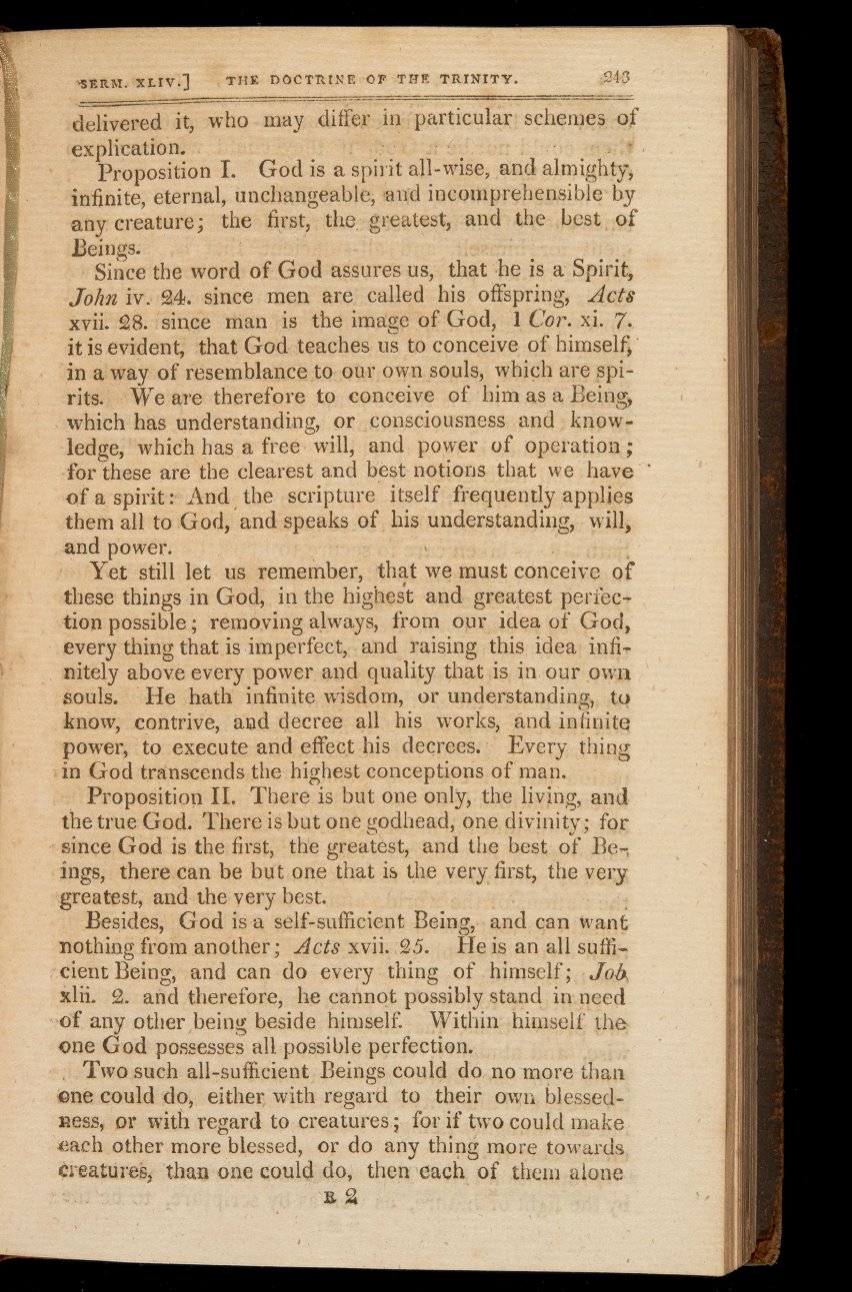

'3SRM.
XLIV.]
THE DOCTRINE
OF
THE
TRINITY.
1$
delivered
it, who may differ in
particular
schemes
of
explication.
Proposition
I.
God
is
a spirit
all -wise,
and almighty,
infinite,
eternal, unchangeable,
arid
incomprehensible
by
any creature;
the
first,
the greatest, and
the best
of
Beings.
Since
the word
of
God
assures
us,
that
he
is
a
Spirit,
John
iv. 24. since men are called
his offspring,
Acts
xvii.
28.
'since man
is
the
image
of
God,
1
Cor.
xi.
7.
it
is
evident,
that God
teaches
us
to
conceive
of
himself,*
in
a
way
of
resemblance to
our
own
souls, which
are spi-
rits. We are
therefore
to conceive
of
him as
a
Being,
which has
understanding, or
consciousness
and know-
ledge, which has a
free
will,
and power
of
operation
;
for
these
are the clearest and best notions
that
we
have
of
a
spirit: And
the
scripture
itself frequently applies
them
all to
God, and speaks
of
his
understanding,
will,
and
power.
Yet
still
let
us
remember,
that
we
must
conceive
of
these things in God, in the highest
and
greatest perfec-
tion
possible
;
removing
always,
from
our
idea
of
God,
every thing
that
is
imperfect, and raising this
idea
infi-
nitely above
every power
and quality
that
is
in
our own
souls.
He hath
infinite
wisdom,
or understanding,
to
know,
contrive, and decree
all
his
works,
and infinite
power, to
execute
and effect
his
decrees.
Every
thing
in God transcends
the highest conceptions
of
man.
Proposition
II.
There
is
but
one
only,
the
living,
and
the true God.
There
is
but
one godhead, one
divinity; for
since
God
is
the
first,
the
greatest, and the best
of
Be-
ings,
there
can
be
but
one
that
is
the
very
first,
the very
greatest,
and the very
best.
Besides,
God
is
a
self- sufficient
Being,-
and
can
want
nothing
from
another; Acts
xvii.
25.
He
is
an all
suffi-
cient
Being,
and
can
do every
thing
of
himself;
Job
xlü. 2.
and
therefore,
he
cannot
possibly stand
in
need
Of
any
other,being
beside
himself.
Within
himself
the
one God
possesses all
possible
perfection.
Two such
all
-
sufficient Beings
could do no more
than
,ene
could do,
either
with
regard
to
their
own blessed
-
ness,
or
with
regard
to
creatures;
for
if
two
could make
each
other
more
blessed,
or
do
any thing more
towards
éreatures, than
one could
do,
then each
of
them alone
n,
2

















